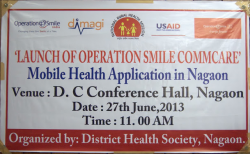
First published on MedCityNews.com.

First published on MedCityNews.com.
The hullabaloo around 23andMe brought to light one unresolved issue for direct-to-consumer testing companies, and now a federal advisory panel is bringing to light another: dealing with incidental findings.
Incidental findings are pieces of information that are happened upon by clinicians, researchers or DTC testing companies during a test or procedure. For example, a child who’s had an on-the-field collision has an MRI to check for brain damage. Instead, radiologists find a small growth that could potentially be cancerous.
Of course these kinds of findings can be lifesaving in some cases. But in others they could be distressing. Say a young woman enrolls in a study that involves having her genome sequenced to look for variants that indicate she’s at-risk for developing breast cancer. In the process, researchers find a variant that might suggest she’s at risk for a genetic condition which has no cure. Is it that company’s responsibility to tell her? Does she want to know?
As technology advances, these tough decisions resulting from a routine test, from participation in research or from having a genome sequenced are likely to become more common.
“Practitioners seem to be getting conflicting advice about how to manage these findings,” explained Amy Gutmann, chairwoman of the Presidental Commission for the Study of Bioethical Issues, in a call with reporters on Wednesday.
To set the course for action, the commission put together a 160-page report that details the importance of shared decision-making between practitioners and patients before such tests are given.
The report doesn’t prescribe specific plans as to how they should go about that. “Prescribing a single plan would be a mistake,” Gutmann explained. Instead, the commission came up with five broad recommendations:
- Clinicians, researchers and genetic testing companies should inform participants/patients of the potential of incidental findings before the test is administered and devise a plan for dealing with them.
- Professional groups should develop guidelines for their members that categorize likely incidental findings and establish best practices for managing them.
- Federal agencies should continue to fund research on the potential costs, benefits and harms of identifying incidental and secondary findings, to develop evidence that will inform decisions about how to manage them.
- Public and private entities should prepare educational materials for practitioners, IRBs and potential recipients of incidental findings.
- All individuals must have access to the necessary information and guidance needed to make informed choices about what tests to undergo and what to do with the information once received. Existing disparities could lead to unequal access to the counseling and care needed to deal with findings.
The report gets a little more specific in is recommendations for providers, researchers and DTC companies. You can read it in full here.







